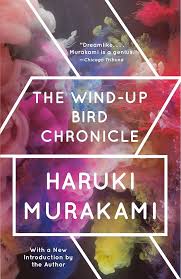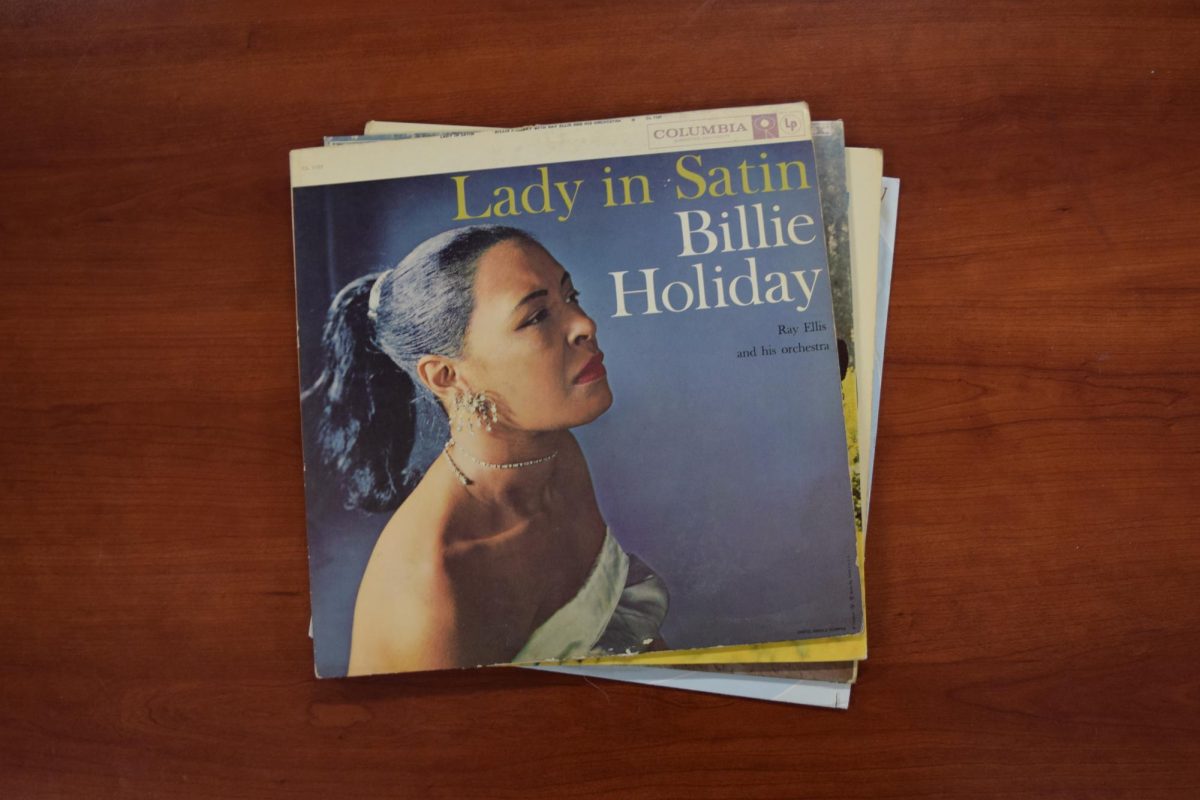
In January, I told myself I’d read thirty books this year. I read three books in January and then none in February, and none in March, and none in April. Things were looking down for me. At that rate, I’d never complete my goal. I began to worry I’d end up reading only those three all year.
However, I finally finished another book at the start of this month. The Wind-Up Bird Chronicle, by Haruki Murakami, is 607 pages, and I finished it in a week. I even did that thing I always do when I read a good book, and I stop doing all my homework; my grades drop like flies, and my math teacher gets a little sad because I spent the whole class reading.
To me, what was so compelling about it was that it was so weird (which, I’m beginning to see, is a common theme with the books I choose to review). Additionally, the voice is absolutely captivating, insofar I even found myself trying to replicate it in my own writing.
The words flow together seamlessly, like that’s just how they were meant to be arranged all along, even if the sentences they form don’t quite make any sense. I’m pretty sure it’s entirely this book’s fault that I already look like I need botox from furrowing my eyebrows too much, just constantly thinking, “huh?”
The book is basically a fever dream. It follows an unassuming ‘everyman’, Toru Okada who seems pretty much as confused as the reader throughout the majority of the novel.
The beginning of the book makes it seem like it’s about the search for Toru’s cat, Noboru Wataya, named after his brother-in-law. The search for the cat was weird enough as Toru was instructed by his wife to do anything the woman on the phone asks. My first thought, and probably most people’s was “Oh! Ransom?” It had nothing to do with ransom. That would make too much sense to be in a Murakami book.
Instead, the woman on the phone was Malta Kano, a powerful psychic who basically just told Toru that his neighborhood has bad energy.
Toru is unemployed, and stays at home cleaning, cooking, and reading most days. A search for a cat becomes a search for his wife, Kumiko who works in a publishing company. Kumiko comes home later and later until eventually, she just doesn’t anymore.
Toru meets a variety of people throughout the book. From psychics to wig makers to the allusive ‘Nutmeg’, an ex-fashion designer, now spiritual healer, who can’t stand to be around people who don’t dress well. He listens to their stories, spends some time at the bottom of a dried up well, and does kind of a lot of trespassing.
I found myself completely lost in Murakami’s writing. This can mostly be attributed to the fact that there really is no part in the book where what comes next is predictable at all. It’s almost as if it’s just one big cliffhanger. You might think this next sentence will reveal it all to you and everything will make sense, but no, life just isn’t that simple, of course the sentence that was supposed to be helpful only told you that there’s even more you don’t understand.
Alas, a Murakami book isn’t a real Murakami book unless all the women are horribly written. I will say that at least in this one, the majority of the characters were equally unreal, but there were a couple of sane-passing men and you can’t exactly say the same for the women, who were either completely bizarre or at some point exploited.
That sort of abhorrent thing, I’m used to; I’ve read enough Murakami to know what to expect, but for a lot of people, that can take a book from a ten out of ten to a two out of ten. So if you’re one of those people, and I can not stress this enough, this is not the book for you.
For The Wind-Up Bird Chronicle, Murakami received the Yomiuri Literary Award from Kenzaburō Ōe, one of his former harshest critics who won a Nobel Prize in Literature in 1994.
The book itself is worth reading, considering I still haven’t stopped thinking about it since I finished it, but I wouldn’t recommend it to just anyone. As with most Murakami books, it’s really the kind of thing that you either love or you hate.







